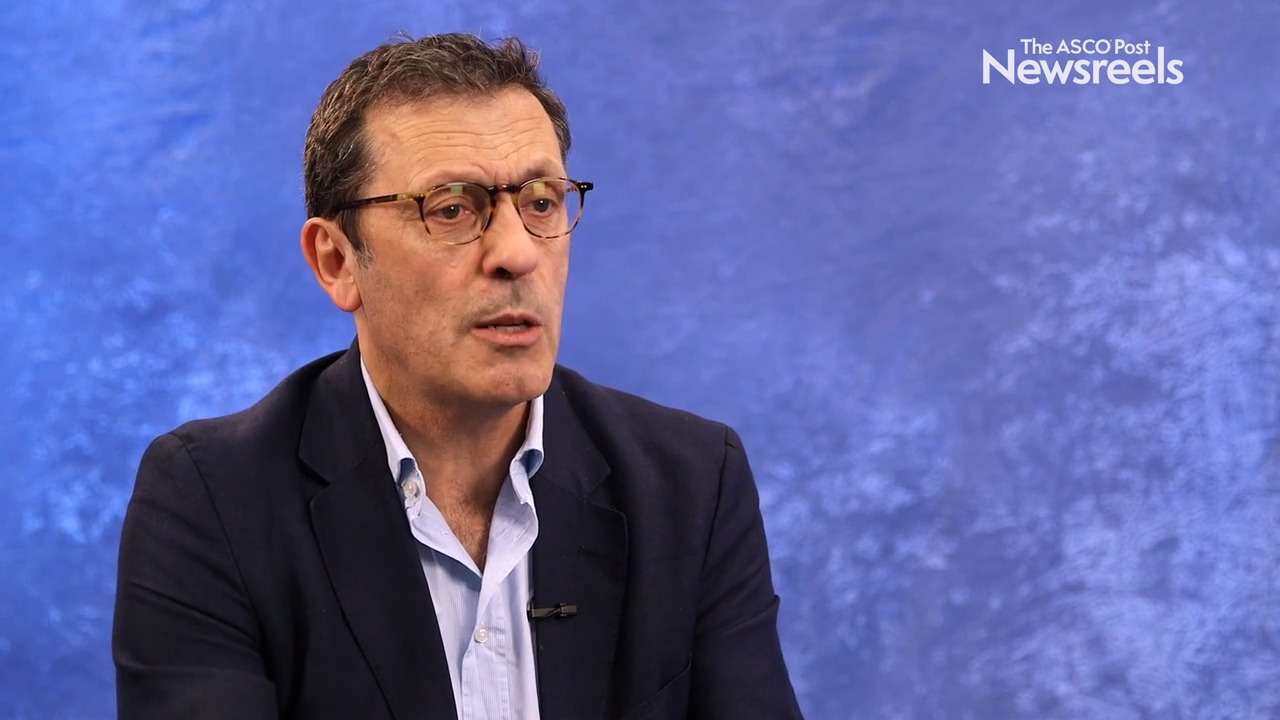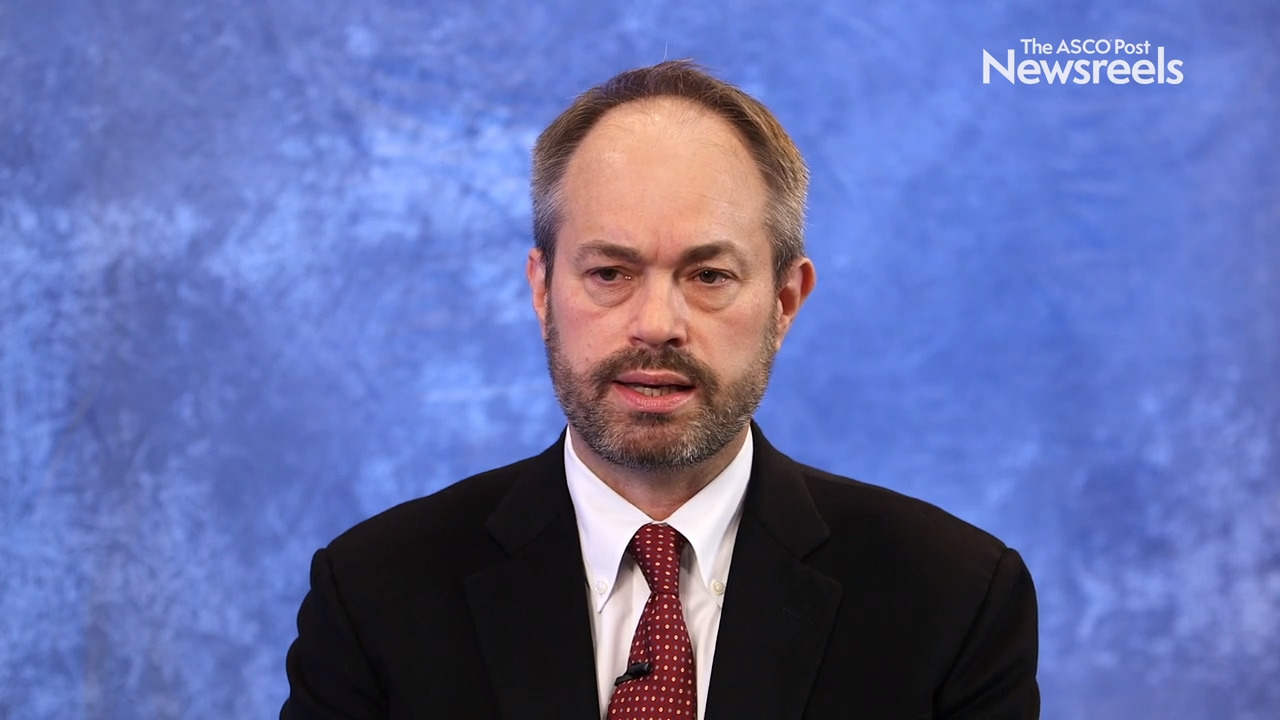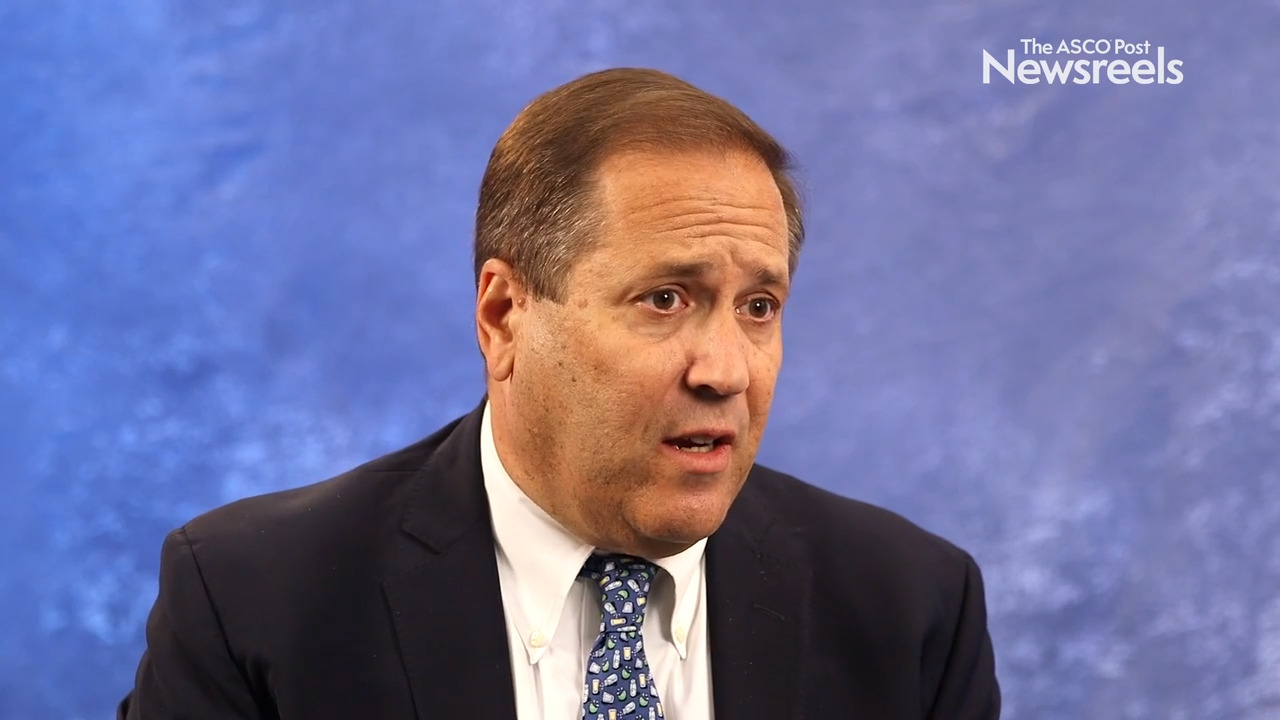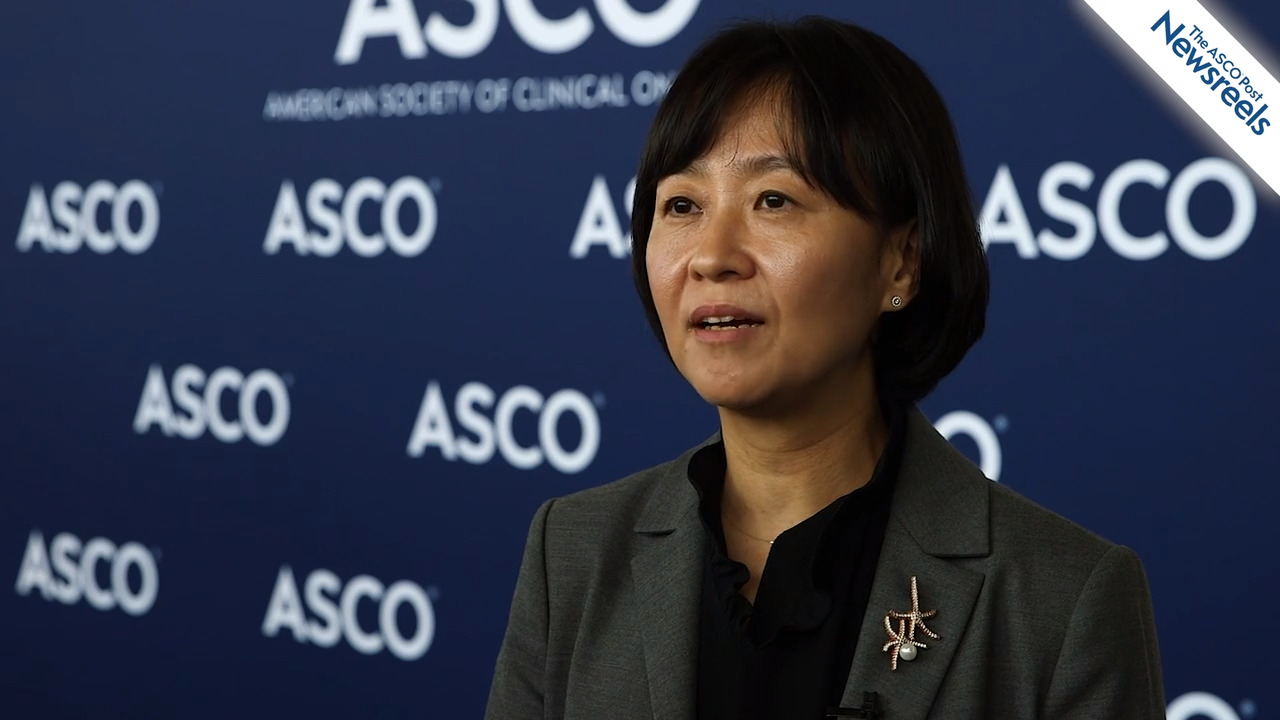Ahmad A. Tarhini, MD, PhD, on High-Risk Melanoma: Adjuvant Ipilimumab vs High-Dose Interferon-α2b
2019 ASCO Annual Meeting
Ahmad A. Tarhini, MD, PhD, of Emory University and Winship Cancer Institute, discusses phase III findings from the U.S. Intergroup E1609 trial, which showed survival benefits for patients with resected high-risk melanoma—for the first time in the history of melanoma adjuvant therapy (Abstract 9504).
Luis G. Paz-Ares, MD, PhD, of Hospital Universitario 12 de Octubre, discusses study findings on the second-line use of lurbinectedin in patients with both resistant and sensitive small cell lung cancer (Abstract 8506).
William G. Wierda, MD, PhD, of The University of Texas MD Anderson Cancer Center, discusses the TRANSCEND CLL 004 trial, which studied the use of an experimental CD19-directed CAR T-cell product in heavily pretreated patients with chronic lymphocytic leukemia or small lymphocytic lymphoma (Abstract 7501).
Panagiotis A. Konstantinopoulos, MD, PhD, of Dana-Farber Cancer Institute, discusses his phase II study on the response to avelumab in microsatellite-stable and -instable recurrent or persistent endometrial cancer with a polymerase epsilon mutation (Abstract 5502).
Adam Brufsky, MD, PhD, of Magee-Womens Hospital and the Hillman Cancer Center at the University of Pittsburgh Medical Center, discusses phase III study findings on neratinib plus capecitabine vs lapatinib plus capecitabine in patients previously treated for HER2-positive metastatic breast cancer (Abstract 1002).
Yeon Hee Park, MD, of the Samsung Medical Center, discusses phase II study findings that showed exemestane plus palbociclib with ovarian suppression improved progression-free survival compared with capecitabine in premenopausal estrogen receptor–positive metastatic breast cancer (Abstract 1007).





